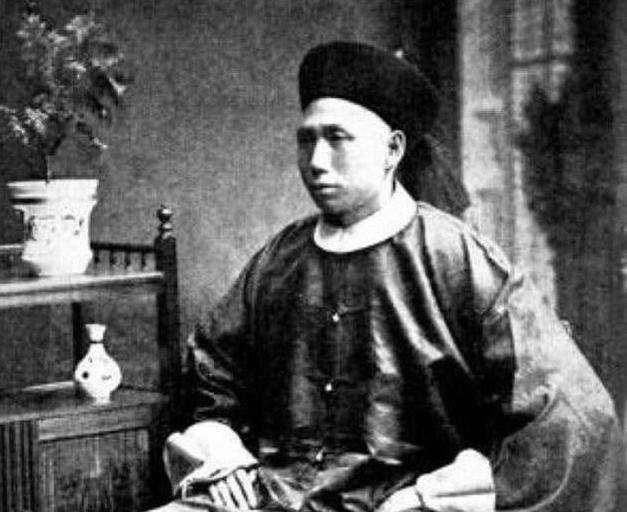You can see in the history textbooks that there is a story about the Battle of Weihaiwei, in this battle, the most important character is Ding Ruchang, I believe that everyone is not unfamiliar with the character of Ding Ruchang. After the Opium War in 1840, our country became a semi-colonial and semi-feudal society, and patriots from all walks of life in the country began to seek ways to save the country. There have been major events such as the Foreign Affairs Movement and the Penghu Reform Law. Among them, the main content of the foreign affairs movement is to learn from the new western navy, and the "Beiyang Naval Division" was born, and the admiral of the Beiyang Navy was Ding Ruchang. Ding Ruchang's life made many contributions to the country, but he was eventually defeated in the Battle of Weihaiwei and finally committed suicide and martyrdom.

In our eyes, Ding Ruchang, who chose to commit suicide and martyrdom, was a hero, but in the eyes of the Guangxu Emperor, the ruler of the late Qing Dynasty, he was a heinous and heinous sinner. Because the Guangxu Emperor believed that Ding Ruchang, as the admiral of the Beiyang Navy, had lost all his army due to operational errors in the Battle of Weihaiwei, all the responsibility was held to him. As a result, after Ding Ruchang committed suicide and martyrdom, not only was he not able to get a posthumous title, but the Guangxu Emperor also ordered the addition of three iron chains to his coffin, and the surface of the coffin was painted black, and he was not allowed to be buried for more than ten years. In this way, a hero can not finally be buried.
Ding Ruchang was born in 1836, his ancestral home is in Anhui, Ding Ruchang has loved to learn since he was a child, and he has a very strong learning ability because of his family's difficulties, but due to family difficulties, he had to give up his studies to work to subsidize his family. When Ding Ruchang was a teenager, he joined the Taiping Army, but later because the Xiang Army attacked Anqing, the Taiping Army was defeated, and Ding Ruchang had to defect to the Xiang Army. In ancient times, people who generally surrendered were not reused, and Ding Ruchang worked very hard in every battle, and finally won the appreciation of Liu Mingchuan, and was promoted and promoted by his own efforts, but in the end he was dismissed because of the contradiction between him and Liu Mingchuan. After the dismissal, Ding Ruchang was favored by Zuo Zongtang, but Li Hongzhang was killed halfway, and in the end, Ding Ruchang was still under the banner of Li Hongzhang.
In 1879, Li Hongzhang ordered a large number of warships from the British, and Ding Ruchang, as Li Hongzhang's proud subordinate, was fully responsible for receiving warships and managing the Beiyang Navy. During his tenure, Ding Ruchang can be regarded as conscientious and conscientious, constantly learning naval knowledge. When Ding Ruchang went to Britain, he found a clear gap between the two countries, which made him work harder to improve his own naval capabilities. In fact, the reason why Ding Ruchang suffered such a disastrous defeat in the Battle of Weihaiwei was still due to the orders issued by Li Hongzhang, who ordered Ding Ruchang to avoid fighting at that time, which led to the total annihilation of the Beiyang Navy.
The Guangxu Emperor blamed Ding Ruchang alone for his entire responsibility, which was really inappropriate. What do you think?